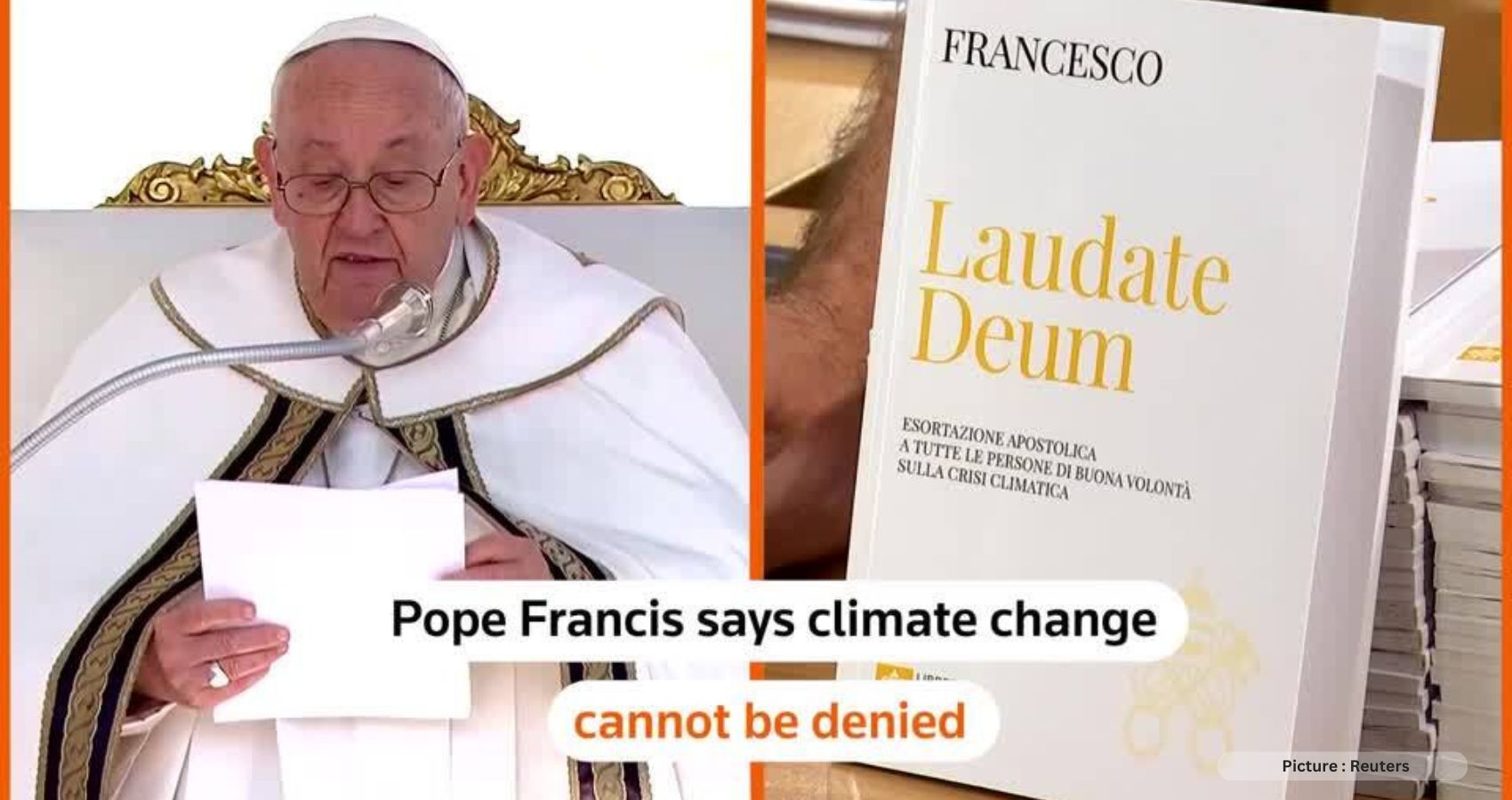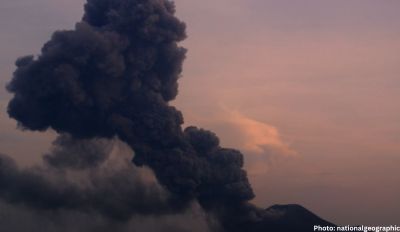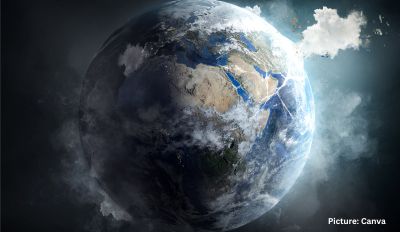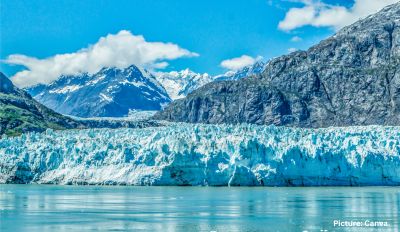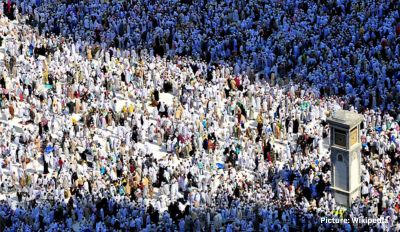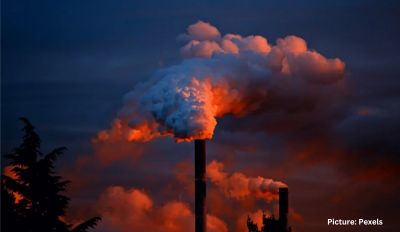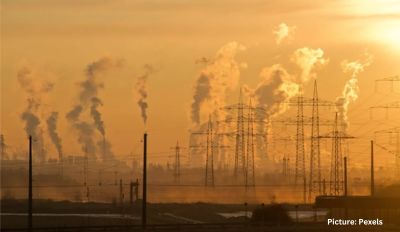In his recent apostolic exhortation, Laudate Deum, Pope Francis extends the dialogue initiated by his 2015 encyclical, “Laudato Si’, on Care for Our Common Home.” Climate scientists affirm the scientific rigor of this latest document, while theologians applaud the Pope’s unwavering commitment to addressing the climate crisis.
At the outset of Laudate Deum, Pope Francis commends the U.S. bishops’ assessment of climate change as a social issue. He cites the 2019 global climate change background report from the U.S. Conference of Catholic Bishops, underlining the interconnectedness of caring for both one another and the Earth. This report emphasizes that climate change is a paramount challenge facing society and the global community, with the most vulnerable bearing the brunt of its impacts.
Archbishop Thomas Wenski of Miami welcomes the inclusion of this quote, viewing it as recognition of the conference’s longstanding work on climate. He asserts that environmental stewardship has been an ongoing commitment of American bishops.
Daniel DiLeo, associate professor and director of the justice and peace studies program at Creighton University, sees the citation as a strategic move to hold the bishops accountable for their own standards. DiLeo, who co-published a study in 2021 revealing that the majority of U.S. bishops rarely mentioned climate change in their writings around Laudato Si’, remains skeptical about the likelihood of a significant change in the bishops’ stance post-Laudate Deum. He calls on the bishops to commit to substantial emission reductions within specific timeframes to align with Laudate Deum’s call and engage young Catholics actively in environmental issues.
In line with this, Christiana Figueres, the United Nations official instrumental in the 2015 Paris Agreement, had previously challenged the U.S. Catholic Church to commit to achieving net-zero emissions by 2040. DiLeo underscores the importance of collective action among individual Catholics, urging them to leverage their combined influence in their dioceses and with elected officials.
In Laudate Deum, Pope Francis issues a challenge to the United States, noting the high per capita emissions in comparison to China and the poorest countries. He emphasizes the need for a significant shift away from the unsustainable Western lifestyle as a means to address the climate crisis.
In response to this criticism, Archbishop Wenski questions the accuracy of the comparison between China and the United States, suggesting that China’s pollution levels might be underestimated.
According to the World Bank, the U.S. emitted 13.0 metric tons of carbon dioxide per capita in 2020, while China emitted 7.8 metric tons per capita. Nevertheless, Archbishop Wenski acknowledges that conspicuous consumption is a notable aspect of American culture and hopes that Laudate Deum prompts self-reflection.
The archbishop commits to implementing more sustainable and energy-efficient practices in parishes and schools within the Miami Archdiocese. He also expects Laudate Deum to influence their legislative priorities when advocating for government policies.
 Laudate Deum’s extensive explanation of the latest climate science garners praise from climate scientists. Carmelite Fr. Eduardo Agosta Scarel, a climate scientist and senior adviser to the Laudato Si’ Movement, applauds the document’s use of up-to-date scientific knowledge. However, he points out a concern with the Pope’s use of the term “correlation” when describing the relationship between greenhouse gas emissions and climate change. He emphasizes that it’s not merely a correlation but a well-established scientific theory explaining the Earth’s climate behavior.
Laudate Deum’s extensive explanation of the latest climate science garners praise from climate scientists. Carmelite Fr. Eduardo Agosta Scarel, a climate scientist and senior adviser to the Laudato Si’ Movement, applauds the document’s use of up-to-date scientific knowledge. However, he points out a concern with the Pope’s use of the term “correlation” when describing the relationship between greenhouse gas emissions and climate change. He emphasizes that it’s not merely a correlation but a well-established scientific theory explaining the Earth’s climate behavior.
Carlos Martinez, an atmospheric scientist and chair of the Committee on Spirituality, Multifaith Outreach, and Science at the American Meteorological Society, commends Pope Francis for his straightforward and simple communication on climate. He believes that this approach will help climate scientists effectively reach religious audiences who might be apathetic or skeptical about climate change.
Martinez appreciates Pope Francis’ attention to geoengineering and carbon capture technology, noting the potential of the latter to play a positive role.
Laudate Deum places significant emphasis on the forthcoming United Nations climate change summit, COP28. Pope Francis calls for “binding forms of energy transition” at COP28, focusing on their efficiency, obligation, and monitoring.
Sister Veronica Brand, representing the Religious of the Sacred Heart of Mary at the U.N., recognizes the impact of Pope Francis’ environmental teachings on U.N. leaders. She appreciates his concept of “multilateralism from below,” emphasizing the importance of representing the voices of people on the ground, especially sisters’ participation at the U.N.
Blair Nelsen, representing the Sisters of St. Joseph of Peace at the U.N., applauds Pope Francis’ analysis of the state of multilateralism and underscores the significance of civil society organizations. Nelsen points out the incentive for destructive business practices under the prevailing technocratic paradigm, echoing the Pope’s concerns.
Christiana Zenner, associate professor of theology, science, and ethics at Fordham University, lauds Pope Francis for addressing the technocratic paradigm, which questions the idea of unlimited technological and economic growth as an unqualified good. She believes that this document will make the concept of the technocratic paradigm more understandable.
Zenner finds it surprising that the document cites feminist science and technology studies scholar Donna Haraway, given the Vatican’s infrequent citations of women in papal documents. Zenner contends that the document sometimes discusses women more than it allows them to have a voice.
Finally, Fr. Emmanuel Katongole, a theology and peace studies professor at the University of Notre Dame, appreciates Pope Francis’ connection between Indigenous culture and a healthy ecology. He believes that Indigenous, poor communities may offer insights into a more sustainable future by breaking free from the technocratic paradigm.
Katongole emphasizes the need for widespread awareness of Laudate Deum and its theological and spiritual implications, calling for workshops in all parishes to educate Catholics about the climate crisis.
Dominican Sr. Lissette Avilés-Ríos, who hosts a radio show and podcast focused on environmental care, underscores the importance of conveying Pope Francis’s message and climate science to help people understand the local impact. She calls on Christians to unite their faith with their way of life, taking responsibility for the Earth.

